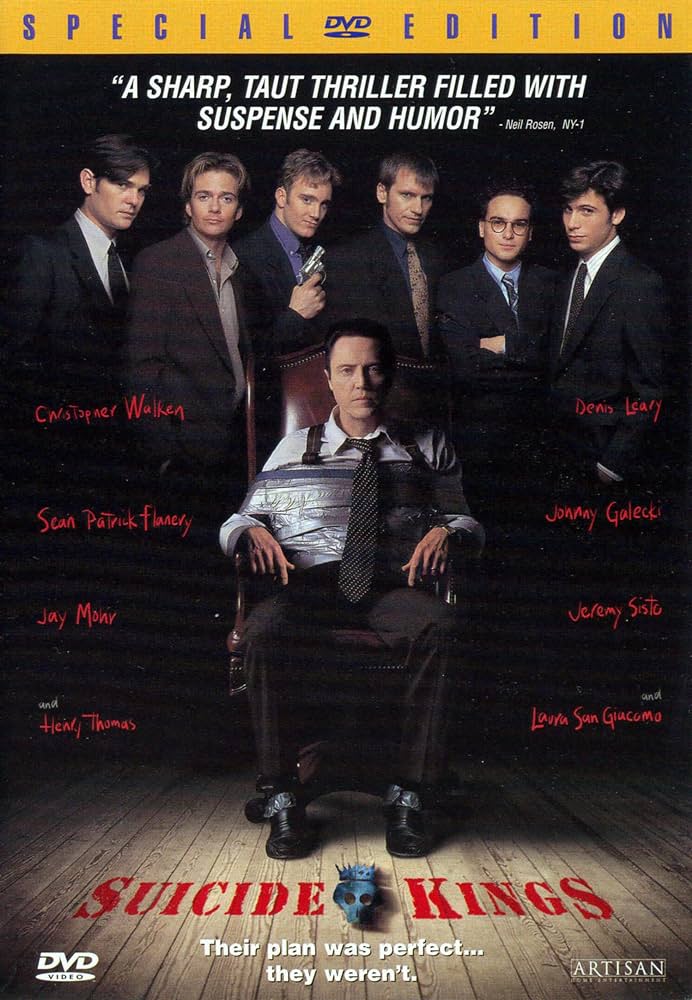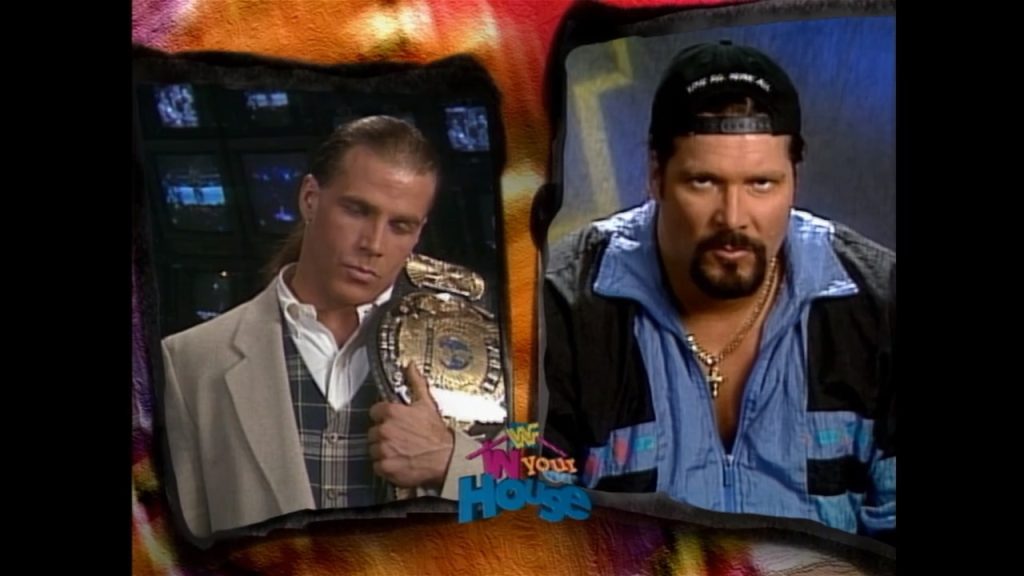“Suicide Kings” (1997) – A Misfired Attempt at Tarantino-esque Cool – Film Review

“Suicide Kings,” directed by Peter O’Fallon in 1997, is a film that tries desperately to ride the coattails of the ’90s crime thriller wave, yet stumbles over its own attempts at edginess and wit. With Christopher Walken headlining a cast of then up-and-coming young actors, the film positions itself as a clever, twist-laden crime drama. However, it ends up as a disjointed and often tedious example of style over substance, a poor man’s attempt at Tarantino-esque dialogue and convoluted plotting.
Narrative: Kidnapping Gone Awry
The plot of “Suicide Kings” centers around a group of well-to-do young men who kidnap a former mob boss, Charlie Barret (Christopher Walken), in a bid to raise a ransom for one of their sisters. The narrative unfolds over the course of one night, with flashbacks and shifting allegiances adding to the supposed complexity of the story.
However, the film’s execution of this premise is where things start to unravel. The storyline is riddled with plot holes and contrived twists that seem more focused on shock value than coherent storytelling. The dialogues, intended to be sharp and witty, often fall flat, leaving the characters’ interactions feeling forced and unnatural.
Behind the Scenes: Aspirations and Limitations
In making “Suicide Kings,” O’Fallon and the team aimed to create a film that captured the cool, slick vibe of the crime thrillers that were all the rage in the ’90s, following the success of Quentin Tarantino’s “Pulp Fiction.” However, the film’s limited budget and production constraints are evident. The majority of the film takes place in a single location – a move that may have been intended to create a sense of claustrophobia but instead contributes to a feeling of stagnation.
The production details, from the set design to the cinematography, lack the polish and inventiveness that could have elevated the film. The result is a movie that feels like a pale imitation of the films it tries to emulate.
Performances: Walken’s Charm in a Sea of Mediocrity
Christopher Walken, with his unique delivery and presence, stands out as the kidnapped mob boss, offering a glimmer of intrigue in an otherwise bland ensemble. The young actors, including Denis Leary, Jay Mohr, and Henry Thomas, deliver performances that range from passable to painfully overdone. Their portrayal of panicked kidnappers often veers into the realm of melodrama, lacking the subtlety needed to make their characters truly compelling.
Cultural Impact: Misguided Male Fantasy
“Suicide Kings” gained a certain level of cult status, particularly among young male audiences who were drawn to its Tarantino-esque aspirations and Walken’s charismatic performance. The film seemed to tap into a certain late-’90s ethos, where sharp dialogue and twisted plots were seen as the ultimate cinematic cool. However, this admiration often overlooks the film’s glaring flaws, including its derivative nature and lack of true depth.
The film’s appeal to this demographic can be partly attributed to its portrayal of a certain male fantasy – the idea of outsmarting a mob boss and navigating a dangerous criminal world, all while spouting off clever one-liners. However, this fantasy is executed with such a lack of finesse and originality that it feels more like a caricature of the genre than a worthy addition to it.
Final Thoughts
“Suicide Kings” is a film that tries to cash in on the ’90s crime thriller craze but ends up showcasing what happens when ambition is not backed by skill or originality. It’s a movie that reaches for the cool factor of its cinematic peers but fails to grasp the elements that made those films resonate. In the end, “Suicide Kings” is remembered not as a standout entry in the crime genre, but as a testament to how style without substance can lead to a forgettable cinematic experience.




